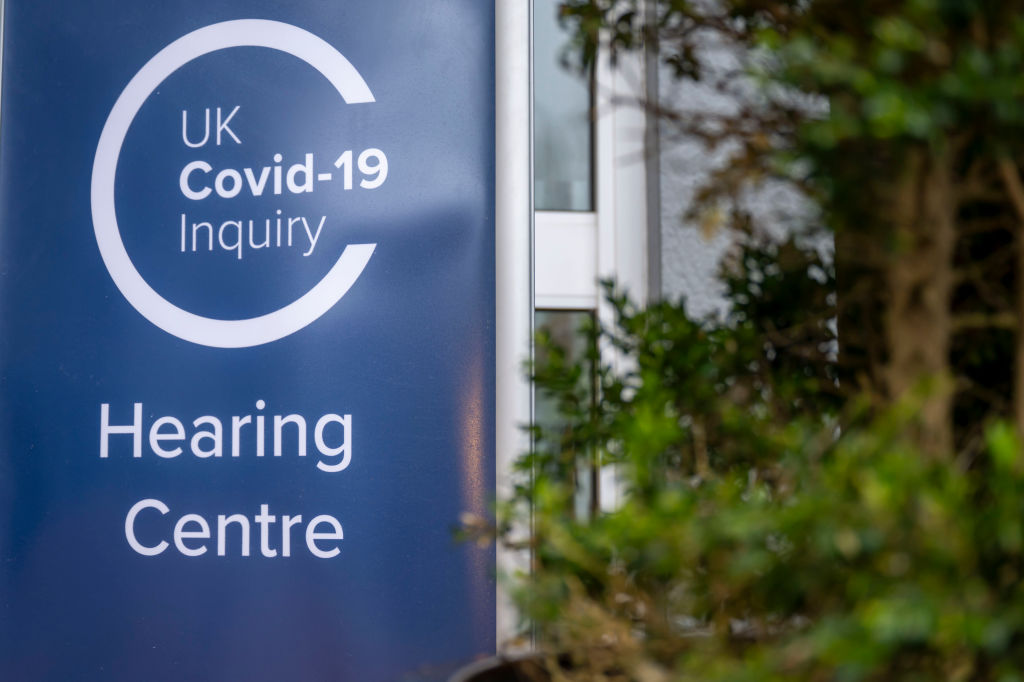The biggest lesson to come out of the first report of the official Covid Inquiry is what a mistake it was to hand to job to lawyers. They have interpreted their job as one of conducting a show trial of politicians, civil servants and advisers who were involved in handling the pandemic. The have obsessed with the processes of decision-making in Downing Street, and with the characters of the people involved. Baroness Hallett’s address to the nation from a large swivel chair was an extraordinary dystopian vision of a Britain in which democracy has been replaced by a kritarchy – rule by judges.
The inquiry has made good theatre, but has failed to answer the questions which most needed to be asked. What we should have had is an inquiry led by scientists (not those who had been involved in advising the government, obviously) which asked the real pertinent scientific questions which might help prevent a future pandemic or given us a more reasoned response – rather like the air disaster investigations which have steadily made air travel one of the safest forms of transport there is. The inquiry has at least asked whether lockdowns were worth it – even if the answers are unsatisfactory. But these are the issues which still need to be addressed, and which it doesn’t look as if Baroness Hallet and her team are going to bother with.
Where did the virus come from? This should have been at the heart of the inquiry and yet has been brushed aside. When Michael Gove (now editor of this magazine) raised the issue in the inquiry the response of the KC was that didn’t want to get into that. Why on Earth not? If the virus came from mixing of animals in a live market, we need to know so that the world can handle animals differently in future. If, as many now feel is more likely, it originated in a lab leak of a virus created in ‘gain-of-function’ research, that would have serious implications for the conduct of such research in future – including the question of whether it should even be allowed. It would be the most expensive accident in history.
Why was so much faith put into modelling which turned out to be wrong? Lady Hallet made the claim that 23,000 lives could have been saved had lockdown been imposed a week earlier in March 2020. She treated this – which came from Professor Neil Ferguson and his Imperial College team – as scientific fact rather than speculative and contentious modelling that it was. We can never know what would have happened had lockdown been introduced a week earlier, but when Imperial College’s modelling was able to be measured against reality, it was found wanting. In December 2021, Fergusson’s team modelled what would happen if the then new omicron variant was allowed to run through the population without a fourth lockdown, or similar such measures. Its worst-case scenario was 5,000 deaths a day in January 2022. But no lockdown was called – and there was no big wave of deaths. How much should we rely on modelling, and can it be improved? That is a question Baroness Hallett has ducked entirely.
Is there any way we could in future keep trace of a virus which spreads via asymptomatic transmission? This was the big problem with Covid: our defences against pandemics were based on isolating people who had developed the disease. Yet Covid was spread by people who showed no symptoms, rendering that approach useless. Test and Trace also failed miserably because it wasn’t picking up cases in time. Is there any mechanism which we could employ in a future pandemic to establish where and how it is spreading?
Could we have a vaccine even quicker in future, and what risks would we be running if we tried to speed up trials? Rightfully, Lady Hallett commended the rapid development of the vaccine. Previously vaccines had taken years to develop; this one took months. Could it be done in weeks in future? There is a very delicate trade-off between speeding up vaccine development and the risk of harm to the population, with 81 deaths linked to the AstraZeneca vaccine. What should the protocol for developing vaccine be during a pandemic? Again, Lady Hallett and her team have shown no interest in this question.







Comments